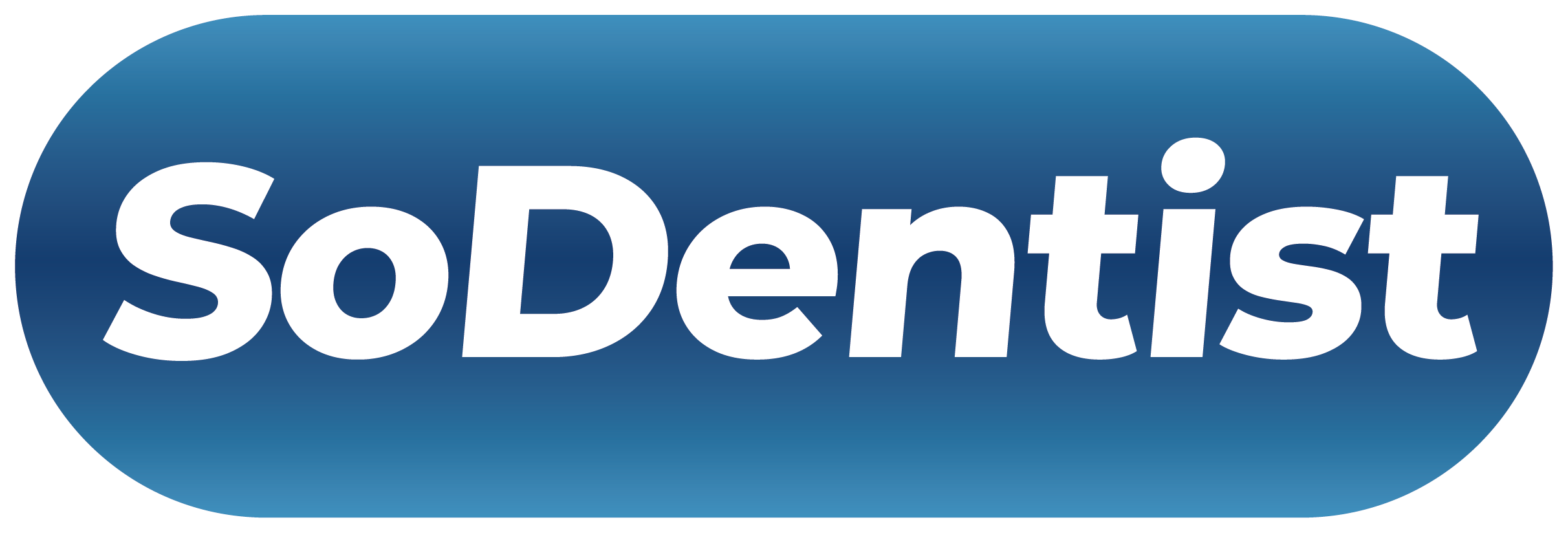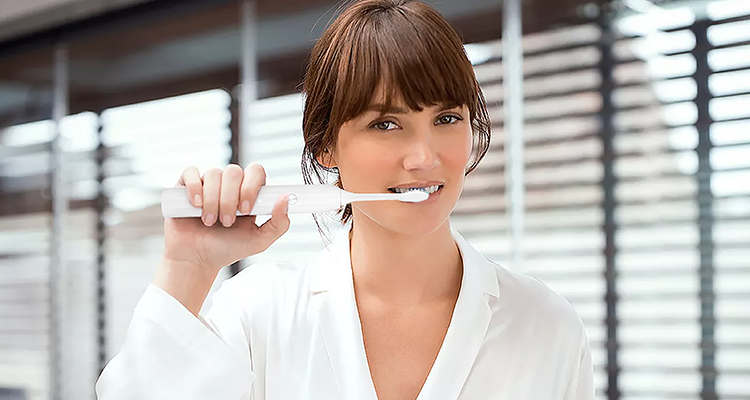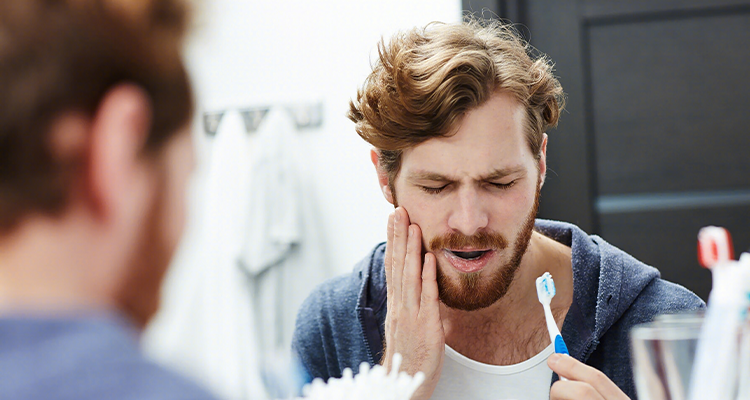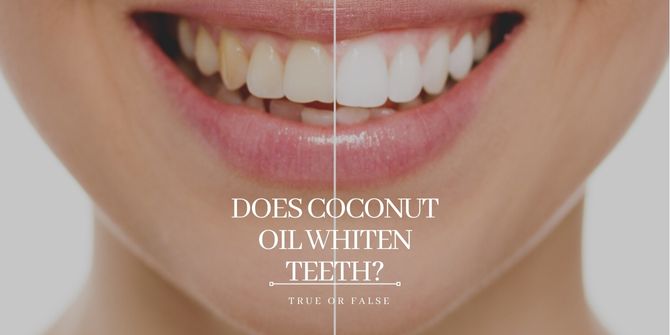In This Article
Are You Supposed to Floss Before or After Brushing
May 09, 2023
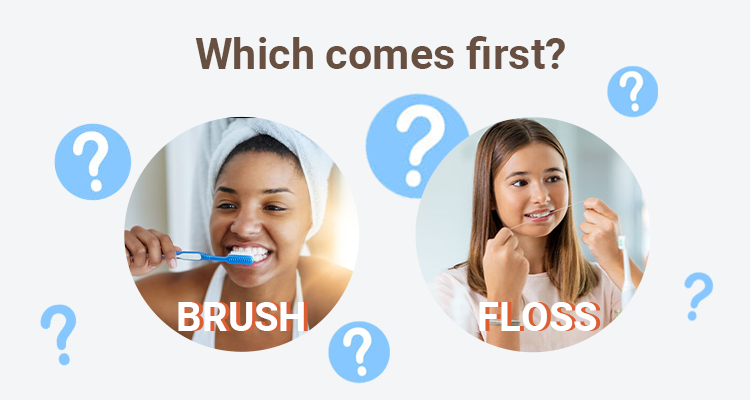
Have you ever found yourself wondering whether you should floss before or after brushing your teeth? There have been many people who have asked this question, and the response might surprise you. While some people swear by flossing before brushing, others find it more effective to floss after brushing. So what's the right answer? Is there even a "right" answer? In this article, we will explore the evidence and opinions surrounding this dental dilemma and provide you with the information you need to make an informed decision about your oral hygiene routine. Let's dive in!
Article Content:
- Good Oral Maintenance Steps
- Are you supposed to floss before or after brushing?
- Other Dental Health Tips
- Summarize
Good Oral Maintenance Steps
Maintaining good oral hygiene is important for keeping your teeth and gums healthy. Here are some steps you can take to maintain good oral hygiene:
-
Brush your teeth twice a day
Brush your teeth twice a day with a soft-bristled toothbrush and fluoride toothpaste. Brushing your teeth helps to remove plaque, a sticky film of bacteria that can build up on your teeth and cause tooth decay and gum disease. -
Floss daily
Flossing helps remove food particles and plaque from between your teeth, where your toothbrush can't reach. It's important to floss at least once a day to help prevent cavities and gum disease. -
Use mouthwash
Mouthwash can help kill bacteria and freshen your breath. Choose a mouthwash that contains fluoride to help strengthen your teeth and prevent tooth decay. -
Limit sugary and acidic foods and drinks
Sugary and acidic foods and drinks can contribute to tooth decay and erosion, so limiting your consumption of these is important. If you do indulge in these types of foods and drinks, be sure to rinse your mouth with water afterward. -
Drink plenty of water
Drinking water can help wash away food particles and keep your mouth hydrated. Aim to drink at least eight glasses of water a day. -
Visit your dentist regularly
Regular dental checkups and cleanings can help prevent and detect oral health problems before they become more serious. Your dentist can also advise on improving your oral hygiene routine. -
Consider using a fluoride treatment or sealants
Fluoride treatments and sealants can help protect your teeth from decay. Your dentist can determine if these treatments are appropriate for you. -
Quit smoking or using tobacco products
Smoking and using tobacco products can cause oral health problems such as gum disease, tooth decay, and oral cancer. Quitting smoking can help improve your oral and overall health.
By following these steps, you can help maintain good oral hygiene and keep your teeth and gums healthy.
Next, let's get into the fun part: Are you supposed to floss before or after brushing?
The Classic Question: Are you supposed to floss before or after brushing?
Certainly! The question of whether to floss before or after brushing is one that many people ask, and the answer may vary depending on personal preference. However, it's important to note that both flossing and brushing are essential components of good oral hygiene, and doing them in the correct order can help maximize their benefits.
According to the American Dental Association (ADA), it doesn't really matter whether you floss before or after brushing as long as you're doing both. However, some dental professionals recommend flossing before brushing because it can help loosen up any food particles or plaque between your teeth, making it easier for your toothbrush to remove them. Others recommend brushing first to remove surface debris and then flossing to get in between your teeth.
Regardless of the order in which you do them, the most important thing is to floss at least once a day and brush your teeth twice a day. This is because flossing helps to remove food particles and plaque from between your teeth, where your toothbrush can't reach, while brushing helps to remove plaque and surface stains from your teeth. When you floss, be sure to use a gentle back-and-forth motion, making sure to get in between every tooth. Use a fresh section of floss for each tooth to avoid spreading bacteria.
When you brush, it's important to use a soft-bristled toothbrush and fluoride toothpaste. Brush your teeth for at least two minutes, making sure to cover all surfaces of your teeth and your tongue. This can help to remove any bacteria that may be present in your mouth, as well as freshen your breath and improve your overall oral health.
In summary, while the order in which you floss and brush may not be critical, it's important to floss at least once a day and brushes your teeth twice a day using a soft-bristled toothbrush and fluoride toothpaste. This can help to remove plaque, prevent cavities and gum disease, and improve your overall oral health.
In addition, please accept the following dental care tips.
Other Dental Health Tips
Here are some other dental health tips to consider:
- Limit sugary and acidic foods and drinks to protect your teeth from erosion and cavities.
- Drink plenty of water to wash away food particles and bacteria and keep your mouth hydrated.
- Chew sugar-free gum to stimulate saliva production, which helps neutralize acids and wash away food particles and bacteria.
- Use an ADA-approved mouthwash to kill bacteria that cause bad breath and gum disease and strengthen tooth enamel to prevent cavities.
- Quit smoking to prevent staining, bad breath, and oral health problems like gum disease and oral cancer.
- Wear a mouthguard when playing sports or grinding your teeth at night to protect your teeth from damage.
- Visit your dentist regularly for checkups and cleanings to prevent oral health problems and keep your teeth and gums healthy.
By following these dental health tips, you can maintain good oral health and prevent oral health problems in the future.
Summarize
In conclusion, whether to floss before or after brushing is common and the answer may vary depending on individual preferences and needs. While some people prefer to floss before brushing to loosen food particles and plaque, others may find it more effective to floss after brushing to remove any remaining debris. Ultimately, the most important thing is to floss regularly and effectively as part of a comprehensive oral hygiene routine, including brushing twice a day with fluoride toothpaste, using mouthwash or a water flosser, and visiting your dentist regularly. These steps allow you to maintain good oral health and enjoy a healthy, confident smile for years.
Share this article
